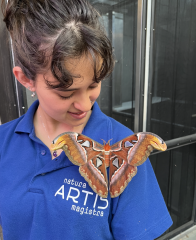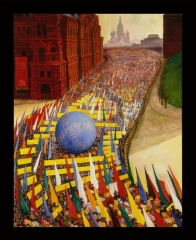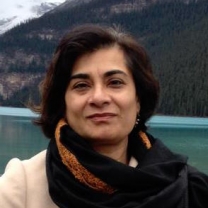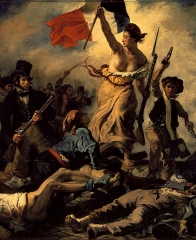 / The Quebec-Labrador Foundation
Subscribe
/ The Quebec-Labrador Foundation
Subscribe

I had an idyllic and peaceful summer living in a cabin in Main Brook, Newfoundland – a small rural town at the top of the Great Northern Peninsula. I lived with a group of supportive mentors who became close friends, and together, we engaged the local communities throughout the peninsula in conservation work.
At the beginning of my field season in mid-June, I visited local schools and gave presentations on Marine Species at Risk and the impacts of marine debris. I was impressed at the cultural differences in these school environments – these schools are very rural, mixed grades, and the students are highly engaged with the environment around them. As part of our program report-writing, we had to ask the students how many of them hunt or fish, to which at least half would raise their hands. Students were familiar with the whales, turtles, and sharks I presented and asked thoughtful questions about entanglements and bycatch.
After the school year ended, we focused on other avenues for youth engagement. Our first project was a community art piece that began with a shoreline cleanup. We guided students in collecting and auditing over 215 pounds of trash from the town coastline, then used the debris to produce an art piece of a leatherback sea turtle, an endangered species found in the waters of Newfoundland. The students actively participated in the project and engaged in conversations about trash pollution and marine debris. The piece now hangs in the Main Brook community center.
I was also involved in local government, making personal connections with the Mayor of Main Brook and attending town council meetings throughout the summer. I helped plan the Canada Day celebration, where we tabled with Plastic Free July resources and educational materials on marine species at risk. My team also hosted a marine conservation-themed trivia night at the local brewery in Saint Anthony and tabled at the annual Port Au Choix Cod Festival.
The highlight of my summer was the week I spent in Labrador leading the annual Youth Environmental Leadership Program at the historical Point Amour Lighthouse. We spent the first three days with middle school youth and trained them to be mentors and leaders for the elementary-aged students. Seeing their enthusiasm, passion, and knowledge of conservation was inspiring. The students presented their work at Parent Youth Night, a reception showcasing the program's impacts and the students' growth.
When I wasn't engaging with the community or teaching youth, I was helping my team with fieldwork and surveys, learning a lot about the different ecosystems of the North Atlantic and the species within them. I surveyed endemic plant species along the limestone barrens and went on boat trips out in Hare Bay to survey for bird species. We added to a database to be used in the continuation of a community-based mapping project throughout Hare Bay.
I loved working in Newfoundland and Labrador and connecting with the locals. I learned about the impacts of the cod moratorium on the economy, the area's reliance on hunting and fishing, and their deep pride in their cultural practices. I admired how the local communities cared for their environment and their respect for the resources they rely on. I immensely enjoyed being a part of a team, where together we solved problems and collaborated to produce a robust summer curriculum engaging the community. I learned that I thrive when surrounded by positivity and enthusiasm and love talking to strangers and meeting new people
When not working, my team and I would go for hikes, look for icebergs, do some whale watching, and overall just enjoy the beautiful scenery around the North Atlantic. This summer was an incredible opportunity for growth and exploration and helped me challenge myself. While many of my summer activities were out of my comfort zone, I had the opportunity to practice trusting myself and my background, which served me well. This experience has helped me gain clarity about my future academic and career paths and has led me to pursue a research project on fisheries management and environmental impacts. I am grateful for the opportunity from the Albright Institute and the support of QLF and Intervale.




